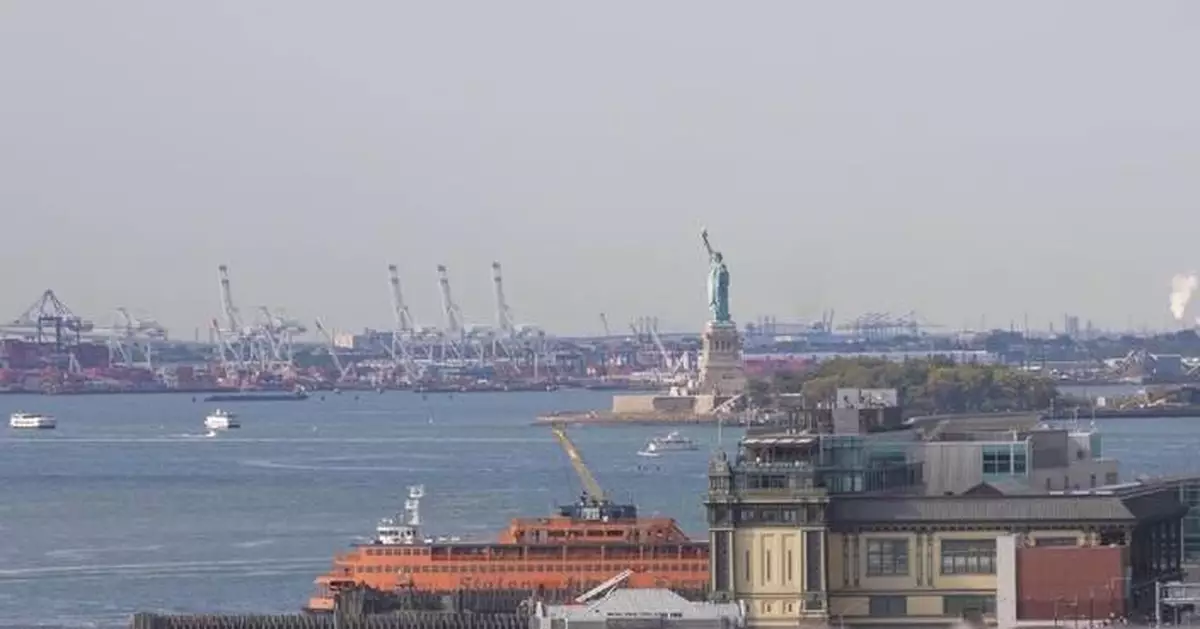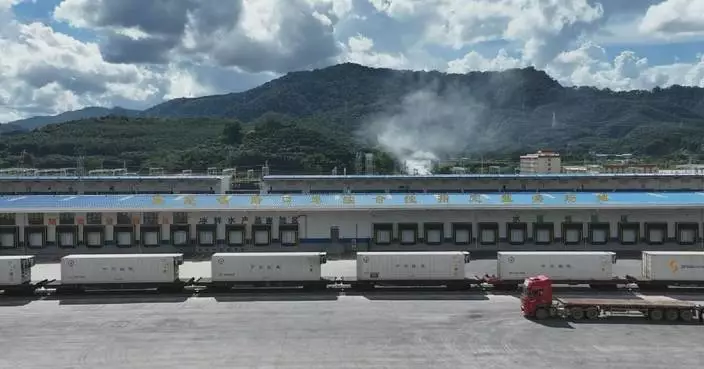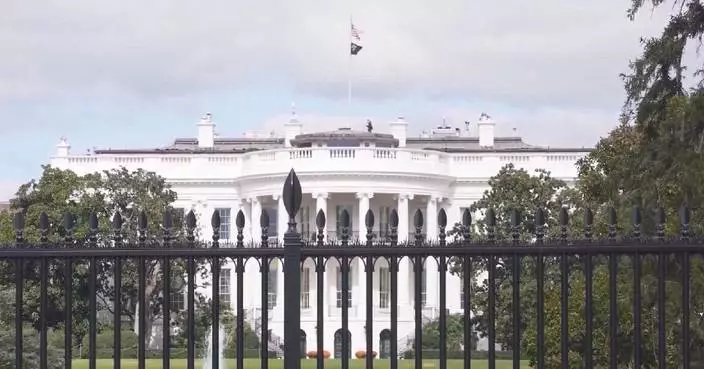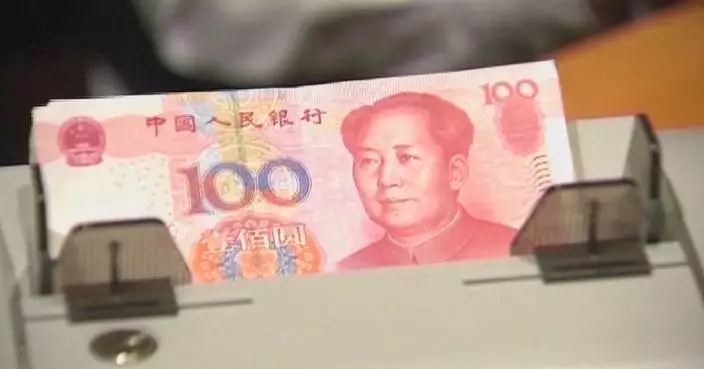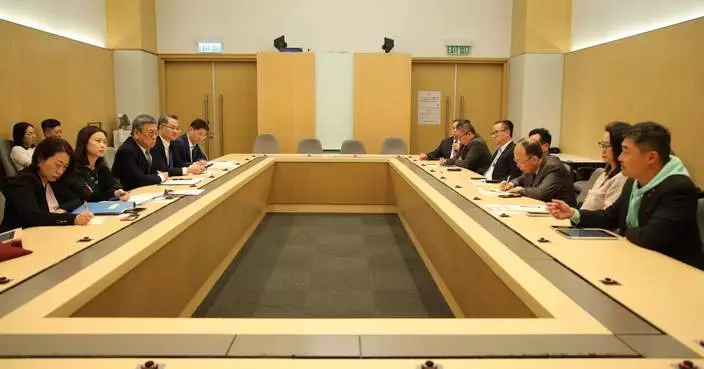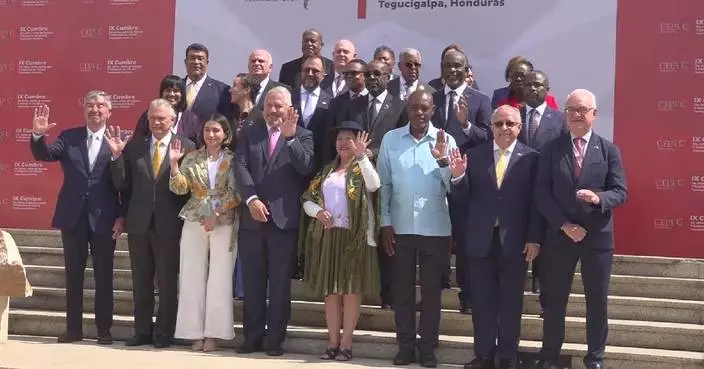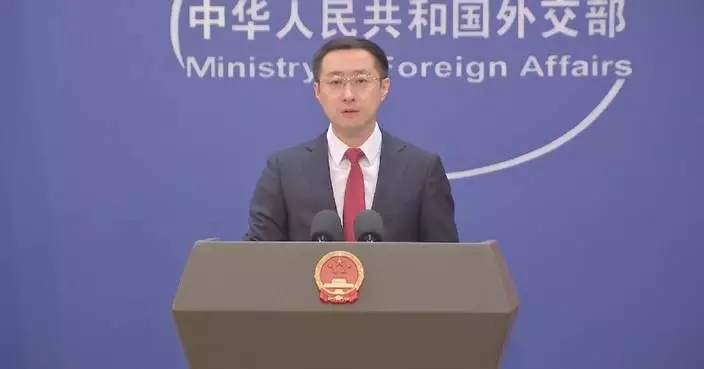A scholar of global trade has warned that sweeping U.S. tariffs on imports could be counterproductive, given the downturn in domestic manufacturing and the world's declining reliance on the U.S. market.
Amid widespread opposition, the Trump administration announced a new set of levies on Wednesday, imposing a 10 percent baseline tariff on imports from all trading partners, with higher rates targeting certain nations. These "reciprocal tariffs" are set to take effect on April 5 and April 9, respectively.
Speaking to China Global Television Network (CGTN) in Beijing, Vijay Prashad, director of the Tricontinental Institute for Social Research, said the U.S. manufacturing industry does not have the capacity to fill the void created by the tariffs.
"The most important thing to understand with these tariffs is that they're not really going to work. Tariffs are useful as a tool sometimes because they raise the cost of importing goods, and therefore give an advantage to domestic manufacturers, who can take advantage of the gap between the cost of a good and the tariff, and flood the market with their goods. The problem is, you can do tariffs -- that's fine. But who is going to invest in the United States to build the things that now have a tariff wall around them? There simply isn't the kind of public or government investment available for that. And billionaires haven't shown the appetite to tie their money up in manufacturing inside the United States. So, tariffs sound great in the abstract -- absent the availability of investment to rebuild manufacturing, it's a 'good luck' scenario," he said.
The scholar argued that amid shifting global trade dynamics, the United States risks isolating itself, while countries in the Global South will increasingly need to strengthen trade among themselves.
"I think Mr. Trump is living in a world where everybody is exporting goods into the United States. It's not true. Most Chinese goods are not going to the U.S. The loser in this is going to be the United States. There are 7 billion people in the world; there are only 300 million in the U.S. There are consumers all over the world. Reliance on the United States at this point -- not a good thing for countries in the Global South. They're going to have to trade more with each other. That's what they're going to have to do," said Prashad.

US tariffs could backfire amid domestic manufacturing slump, declining global reliance on its market: scholar
China has pledged deeper ties with its neighbors to foster common development and stability, following a central conference on work related to neighboring countries, which saw Chinese ambassadors from around the region gather in Beijing this week.
The diplomats and experts attending the conference said the country is working to promote regional collaboration amid growing global uncertainties, strengthening its ties with its neighbors in a way that takes account of both the regional and the global context.
"The trade volume between China and Malaysia reached 212 billion U.S. dollars [in 2024], marking an 11.4 percent year-on-year increase. A large number of infrastructure projects including highways, bridges, ports, terminals and hydropower stations are being implemented across Malaysia. China-Malaysia cooperation epitomizes the broader collaboration between China and ASEAN. We are confident that under the strategic guidance of both countries' leaders, bilateral relations will reach new heights," said Ouyang Yujing, Chinese Ambassador to Malaysia.
"ASEAN and China are geographically close and culturally connected, making ASEAN our important partner for development cooperation. Our combined population exceeds 2 billion, representing a massive market with sustained rapid economic growth in recent years and promising prospects," said Hou Yanqi, Chinese Ambassador to ASEAN.
Other Chinese diplomats said China was being guided by the principles of amity, security, prosperity and win-win cooperation, to promote a shared future with neighboring countries, using its own development to spur regional growth.
This vision has led to concrete achievements, with a consensus on a shared future agreed with 17 neighboring states, Belt and Road cooperation agreements in effect with 25, and 18 regional nations now counting China as their largest trade partner. These deepening political and economic ties have cleared a path toward warm neighborly relations and mutual prosperity, according to other ambassadors.
"China has established comprehensive strategic partnerships with all Central Asian countries and signed Belt and Road cooperation documents. We are jointly committed to building a community with a shared future," said Han Chunlin, China's Ambassador to Kazakhstan.
"The China-Pakistan Economic Corridor, as a pioneering project of the Belt and Road Initiative, has attracted over 25 billion U.S. dollars in direct investment and created 230,000 jobs. It has not only elevated China-Pakistan cooperation but also contributed to Pakistan's economic and social development," said Jiang Zaidong, the Chinese Ambassador in Pakistan.
As the global challenges brought by unilateralism and economic protectionism grow, China remains steadfast in advancing its vision of a shared future, strengthening partnerships with neighboring countries to anchor stability and renew hope, according to China's permanent representative to the United Nations, Fu Cong.
"We must steadfastly uphold fairness and justice, adhere to true multilateralism, safeguard the interests of developing countries, maintain the authority of international law, and firmly oppose 'might makes right'," he said.
"Our world has become highly interdependent. Attempts at 'decoupling' or forced division are not only impossible but also go against historical trends. We must promote shared development through global cooperation. This represents the true exemplar of major-country responsibility," said Wang Fan, president of China Foreign Affairs University.

China pledges deeper cooperation with neighbors to foster stability



